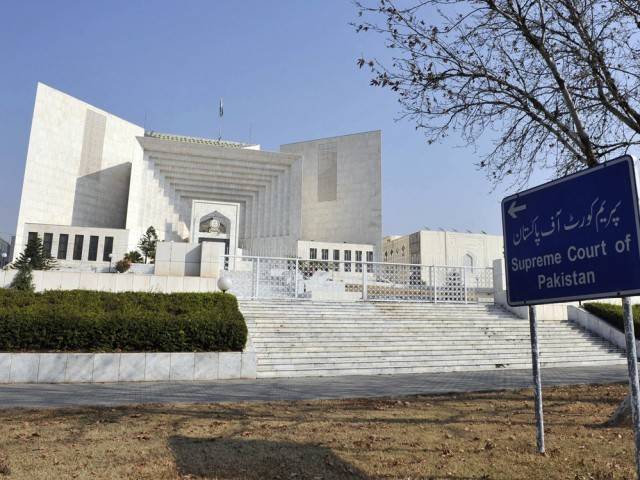ISLAMABAD: Judges, lawyers and executive are responsible for the deterioration of the justice system in the country, said Chief Justice Jawwad S Khawaja, addressing a full-court reference held in connection with his retirement yesterday. Though Pakistan Bar Council and Supreme Court Bar Association boycotted the ceremony to protest the suspension of Barrister Ali Zafar’s practicing licence, a large number of lawyers, social activists and media persons attended the reference.
The SCBA vice president from Balochistan addressed the reference, while no one represented the PBC on the occasion. Chief Justice-designate Anwar Zaheer Jamali and Attorney General Salman Aslam Butt paid tribute to the outgoing CJP. Both the incoming and outgoing chief justices made speeches in Urdu.
Justice Jawwad who will lay down his robe today (Thursday) said it is responsibility of all the state institutions to ensure inexpensive and speedy justice as promised in Article 37(d) of the Constitution. “I am afraid we are not doing that because according to a research conducted by the SC staff, it takes 25 years for a final decision on a case of civil nature while in criminal cases it takes decades from registration of an FIR to filing of challan in courts and reaching the case to the Supreme Court for a final verdict,” he added.
He stated if a person is sent to jail in a criminal case and ultimately is found innocent, there is no remedy for the sufferings he, his wife and children have gone through during that time.
The chief justice said all the state institutions must acknowledge that they have failed to provide speedy and inexpensive justice to the people of Pakistan. He said: “There is a dire need of introspection as our justice system is not the same as it was 100 years ago,” he observed, adding a century ago cases used to be decided within one year.
Justice Jawwad said the judges in their oath undertake they would not allow external pressure, fear and greed to influence their decisions. “But sometimes I have seen facets of fear in the shape of pressure, influence, money or annoyance in the corridor of justice. Our history is witness to it,” he asserted.
He said it is the duty of lawyers, judges and everyone to collectively face the unprofessional conduct and delinquent behaviour which has unfortunately penetrated in the system. He said attitude of ‘obliging’ and ‘accommodating’ is very dangerous for the judiciary as it not only stops the judges from passing bold decisions but also deteriorates the justice system. “Another thing that creates a hurdle in dispensation of justice is apathy. Justice is not the name of wealth or status,” he said.
The outgoing CJP said another important pillar of justice system is lawyers’ community as judges depend upon parties’ counsels in performance of their judicial functions. The lawyers could use their role for providing justice and creating hurdles in its way.
He said unfortunately many lawyers are not using their position for the improvement of justice system as strikes have become a routine. He said, according to a research, 50 strikes were observed in Islamabad district courts from January 2014 to December 2014, due to which 50 percent cases faced delay. He said in the last many years the bar councils had received 7,500 complaints against lawyers, but no action was taken against a single advocate.
Justice Jawwad supported taking suo motu notices under Article 184(3) of the Constitution, saying a lot of people who cannot approach the courts are able to get justice through this provision. He said approximately 20,000 cases are filed in one judicial year of the Supreme Court out of which not more than 30 are suo motu notices.
Justice Jawwad said a large number of cases are being filed in the civil courts as the government and the semi-government departments are not giving citizens their rights. He said in the criminal courts innocent people are awarded sentences while criminals are released because police and prosecutors are not performing their duties honestly.






